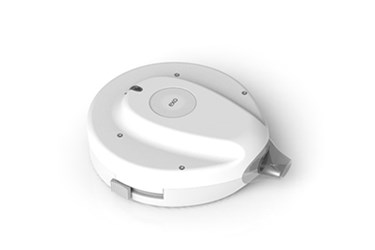Medicinal Marijuana Inhaler Enables Controlled, Smokeless Doses
By Chuck Seegert, Ph.D.

Though the evidence for medical marijuana’s effectiveness continues to mount, many physicians hesitate to prescribe it because dosage is uncontrolled and variable. These fears may soon be put to rest, however, due to a new device from Israeli researchers that delivers the drug in a highly controlled way.
Many medicines or treatments for disease can cause a side effect known as neuropathic pain. Essentially, this is an increase in nerve sensitivity or a development of pain without any cause due to injury or physical interactions with the patient’s environment. It is a pain that is generated by the patient’s nervous system resulting from an effect from a therapeutic treatment.
According to a study published in the Journal of Pain and Palliative Care Pharmacotherapy, support for the use of medical marijuana to treat neuropathic pain is growing due to cumulative evidence that inhaled therapy works. Unfortunately, however, doctors may be reluctant to prescribe a smoked form of the drug as it is often uncontrolled and highly variable. This drawback may be a major factor preventing medical marijuana from being widely accepted into the mainstream of medical practice.
To address these concerns and increase the accuracy of medical marijuana studies in general, an Israeli company named Syqe has developed a device that closely controls the delivered quantity of tetrahydrocannabinol (THC) — the active chemical in marijuana.
“We are directly manipulating the human psyche in a very precise manner,” said Syqe Medical founder and chief executive Perry Davidson in a recent article in the Wall Street Journal (WSJ). “A physician could prescribe a custom-tailored, individualized treatment for that patient, and not have a hit or a miss, but a very close hit on the accurate dosing that the patient required.”
The Syqe inhaler is a small handheld device with a cartridge, reports the WSJ. Each cartridge contains small pellets that can deliver precise doses as small as 1 milligram. The company was able to develop this device using government funding available to startups in Israel, where medical marijuana prescriptions are state-sanctioned.
To demonstrate how effective the device was, the team performed a clinical study with neuropathic pain patients. Results from the research study showed that administration of 15.1 +/- 0.1 mg led to a significant reduction in pain intensity at 20 minutes for patients suffering from neuropathic pain. By 90 minutes, the effects had worn off and pain returned to baseline. Only a small amount of lightheadedness was accompanied by the treatment, and this resolved relatively rapidly. The amount of THC seen in the blood was uniform across the patient population, indicating that the device was a success and worked as intended.
Image Credit: Syqe Medical
